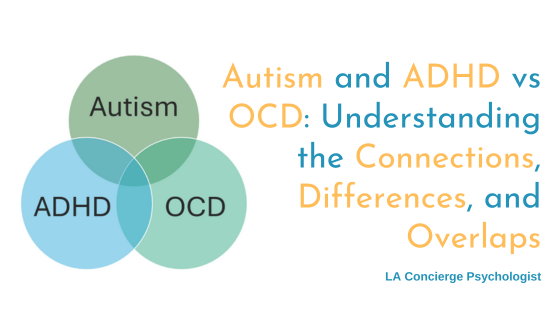Sleep is essential for people with attention-deficit hyperactivity disorder (ADHD), since fatigue can cause impulsivity, emotional outbursts, and difficulty concentrating. Unfortunately, one in four people with ADHD doesn’t get enough sleep due to insomnia or another sleep disorder. Sleep problems tend to increase with age, so adults with ADHD have even more trouble sleeping than children. According to one study, 67% of adults with ADHD regularly experience sleep issues.[1]
In and of itself, ADHD can cause significant functional impairments that affect a person’s home life, career, and academic achievement. These practical effects are significantly worsened in people who don’t sleep long enough or deeply enough. The emotional difficulties associated with ADHD—including depression and anxiety—are also amplified by poor sleep.
How ADHD affects sleep
There is so much overlap in symptoms that insomnia was initially proposed as a criterion for diagnosing ADHD. The connections between ADHD and sleep problems are not yet fully understood, but some researchers believe ADHD and its associated sleep problems are caused by inadequate production of certain neurotransmitters. The underproduction of dopamine, norepinephrine, and serotonin affects more than attention regulation, they say. It also disrupts the sleep and wake signals that tell the brain when to be active versus when to rest.
Delayed melatonin production may also help to explain the connection. In most individuals, melatonin is released around sundown and peaks at around 2 a.m. The timing of this release helps to regulate a person’s circadian rhythm (their body’s internal clock). In someone with ADHD, this melatonin release often happens later in the day, causing a sleep delay.
Stimulant medications such as Adderall may also contribute to sleep problems in some adults, but the research on this connection is contradictory. While some studies have found a relationship between stimulant medications and sleep problems, others suggest that stimulant medications improve sleep.
Sleep solutions for people with ADHD
If you have ADHD and can’t sleep, you may need to talk to a professional to figure out what’s driving your difficulties. You might also have to try a variety of possible solutions before finding one that works for you. Here are a few tips for improving sleep that work for our clients:
Change your environment
Even though sleep problems in people with ADHD are often driven by biological factors, sleep cycle timing can still be influenced. Adjust your thermostat each night to no higher than 65 degrees to signal to your body that nighttime has arrived. Use blackout curtains and cover electronic displays. If you can’t achieve complete darkness for some reason, try to find a comfortable sleep mask. You can also use a white noise app or silicone ear plus to ensure you’re not disturbed by unwanted noise.
Adjust your sleep schedule
Many people sleep in late on weekends, but this can disrupt the body’s internal clock. Instead, go to bed and get up at the same time regardless of the day of the week. If your efforts to move your sleep cycle earlier still don’t leave enough time for a full night’s sleep, consider a compromise. You may be able to shift your work schedule to better align with your natural rhythm.
Address underlying anxiety
Worrying about the past and future is not conducive to restful sleep. To ensure bedtime is a relaxing time, create a routine that reduces nighttime stress. Start by writing down your to-do items and worries to get them out of your head for the evening. Then spend some time doing things that help you relax, such as gentle yoga, meditating, or taking a warm bath. Read a book (as long as it isn’t too stimulating). You can also work with a licensed psychologist to reduce your daily anxiety levels.
Tend to your physical health
Weight lifting, walking, and other activities can help you burn off excess energy during the day, making it easier to fall asleep at night. Get outside and get active as often as you can, ideally first thing in the morning. You should also pay attention to your diet. Sugar, caffeine, alcohol, and other unhealthy substances can severely disrupt the circadian rhythm, so you should avoid them within a few hours of bedtime.
Talk to your doctor about adjusting your medication
If a new medication didn’t seem to hurt your sleep quality, there is no need to change it. However, if your sleep quality declined after starting it, you may need to make some adjustments. If you take a time-release medication too late in the day, it may still be active when you’re trying to sleep. So, be sure to take it on time. You may also want to talk to your doctor about adjusting your dose or moving to a non-time-release formulation. Another option would be to take a time-release pill early and a standard-release tablet later in the day. Be sure to talk to your doctor before making any changes to your medication.
Educate yourself
If you suspect you may have sleep apnea, restless leg syndrome, narcolepsy, or another disorder, learn as much as you can about it and about yourself. Observe your sleep patterns to see whether your symptoms align. Talk to a doctor or sleep specialist who can sign you up for a sleep study. You can also learn a lot through your own observations by using one of the many different sleep tracking apps available on smartphones and fitness trackers.
Get a customized sleep hygiene plan
By working with a licensed therapist, you can uncover hidden causes of your sleep problems and learn behaviors that are more conducive to restful sleep. You can also address underlying mood problems that may be preventing you from getting a good night’s sleep.
Working with a therapist who specializes in adult ADHD can help you identify ADHD sleep solutions as well as improve your overall quality of life. Book a free 20 minute phone consultation with Dr. Priscilla Barajas or Dr. Jenifer Goldman to see how we can help.



